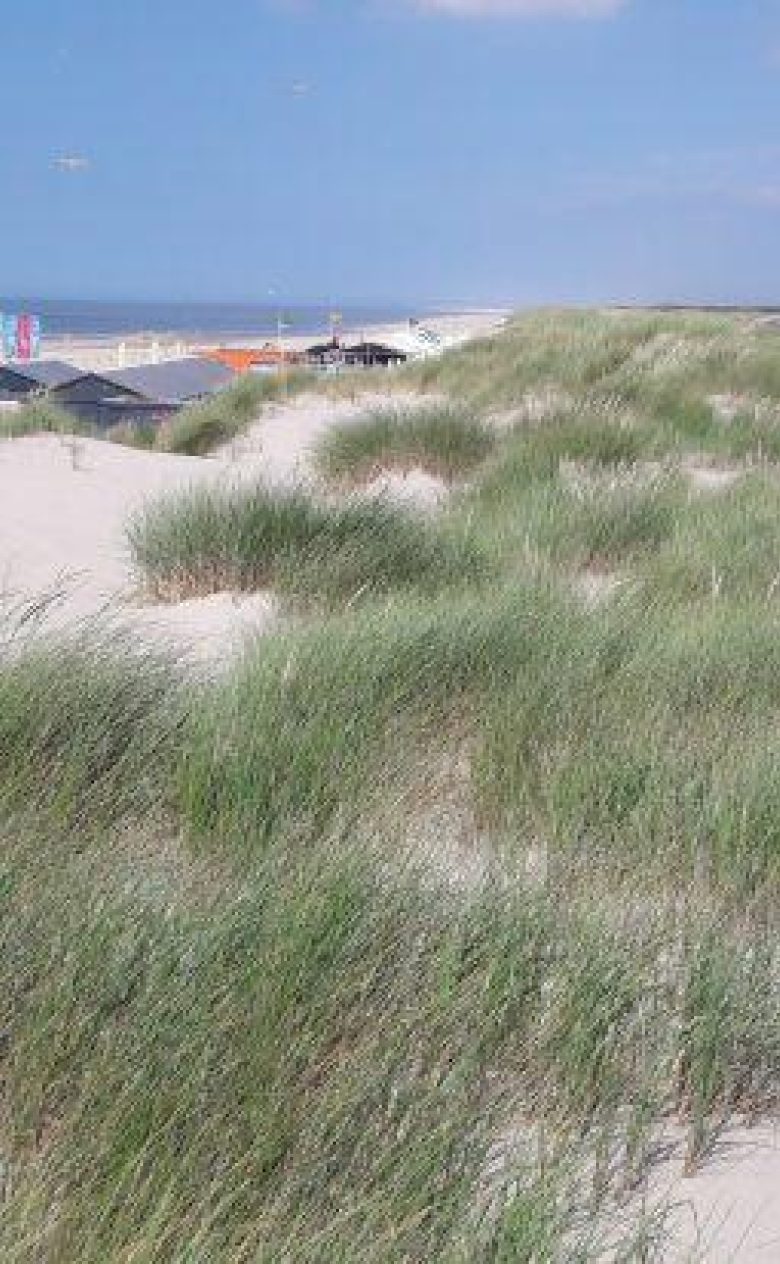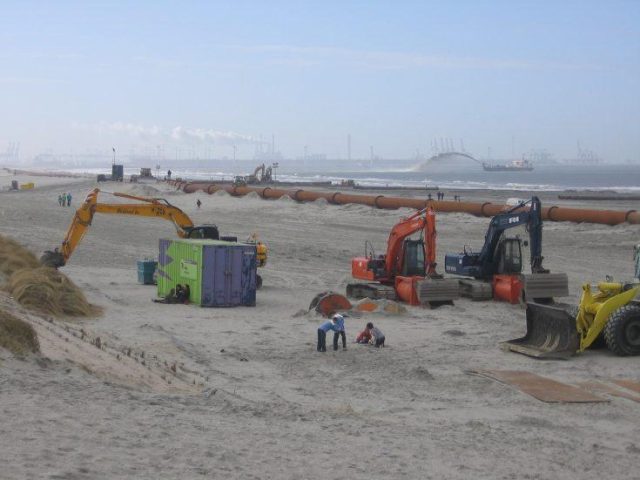Spanjaards Duin dune area
Spanjaards Duin (40ha) is a new dune area, constructed in 2008/9 in front of the existing dunes of the Delfland coast near The Hague (the Netherlands). The area will compensate for predicted quality loss of rare and vulnerable dune habitats due to the extension of the Port of Rotterdam (Maasvlakte 2). Deltares has acted as advisor for Rijkswaterstaat in the monitoring and management of this unique dune landscape. Spanjaards Duin is the first example in the Netherlands where new dunes are constructed with the primary objective to create natural dune habitats as compensation measure. Therefore, careful monitoring and a learning-by-doing approach has been essential to ensure the project objectives will be reached.

Compensation for land reclamation Maasvlakte 2
On the Delfland coastline along the North Sea near Rotterdam, three types of coastal dune habitats are common: white dunes, gray dunes, and dune slacks. However, the extension of the Port of Rotterdam (Maasvlakte 2) threatens these valuable dune habitats. Therefore, the Port of Rotterdam, Rijkswaterstaat, and Zuid-Hollands Landschap worked together to construct and develop Spanjaards Duin, starting in 2008–2009. The project was to compensate for the anticipated increase of maritime and land-based traffic emissions and the resulting increase in atmospheric nitrogen deposition that would damage natural dune vegetation.
Using natural processes for development
Following the initial 6.0 million cubic meters of beach and dune nourishment, natural processes such as wind action, rainfall, groundwater dynamics, and vegetative development shaped the area further into new natural dune habitats. Careful management, monitoring, evaluation, and adjustments ensure that the calcareous, nutrient-poor dune marsh and dry dune grassland are developing successfully. The improved abiotic conditions allow for the settlement of dune slack pioneer species. The compensation habitats should be completely established by 2033 when Maasvlakte 2 is expected to be fully operational.
Monitoring programme
An extensive monitoring programme has underpinned adaptive management. The programme includes groundwater- and sediment dynamics, as well as vegetation development. The measurements are used to examine whether the target habitats indeed develop in the course of time unto 2033. Cooperation between Port of Rotterdam, Rijkswaterstaat, Deltares, Province Zuid-Holland, Zuid-Hollands Landschap, RoyalHaskoningDHV, and a variety of knowledge institutes and consultancies allowed for a successful integrative approach. All these actors discussed monitoring results, alternative interventions, and the details of the design. This resulted in a collaborative and shared decision, even under high pressure.

Lessons learned for other projects
The experience and data gained from the Spanjaards Duin project have already benefited other artificial dune construction projects in the Netherlands, such as the Sand Motor project and the Hondsbossche Dunes. The project team also made all of the modeling data freely available online, allowing easy monitoring by all stakeholders and promoting a wider understanding.

